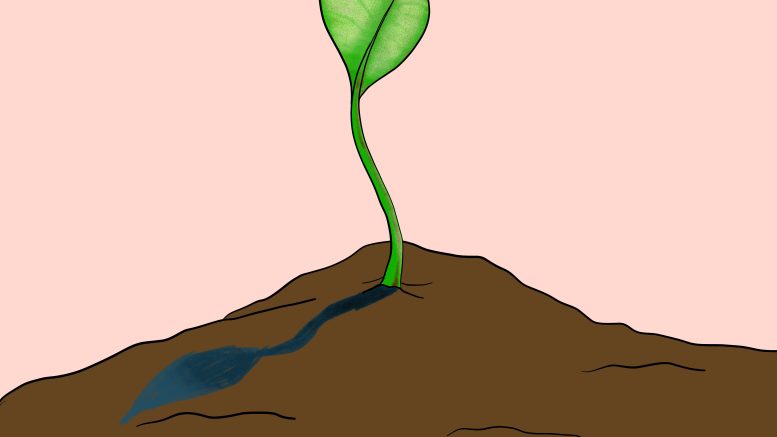In Canada, British Columbia is the second largest producer of natural gas. However, the intersection of energy infrastructure and agricultural lands poses a unique set of challenges for its farmers.
Francis Zvomuya is a professor in the U of M’s department of soil science in the faculty of agricultural and food sciences.
“There’s a lot of production of oil there,” he said. “It’s coexisting with agriculture.”
While vital for energy production, the installation of pipelines for natural gas extraction often disrupts agricultural fields and affects soil health, Zvomuya explained. This disruption can lead to decreased crop yields and productivity, impacting farmers’ livelihoods.
Prompted by farmers’ concerns and the provincial government’s interest, Zvomuya embarked on a research project to investigate the long-term impacts of pipeline installation on soil health and crop yields.
Zvomuya’s study extends beyond the regular assessments conducted post-reclamation. Instead of prioritizing plant counts and heights as proxies for productivity, his research scrutinizes actual crop yields and soil quality — measuring aspects such as microbial populations, nutrient cycles and soil physical processes impacted by pipeline construction. Additionally, the study probes into the potential influence of pipeline infrastructure on soil temperature, moisture dynamics and root development.
Zvomuya emphasized that soil health is crucial for agriculture.
“Just like us humans, it’ll take time for the soil and the land to heal after that damage,” he said.
For the project, they selected pipeline corridors ranging from three to four years post-reclamation, as well as older pipelines dating back 12 to 13 years, to assess productivity and yield.
“We took advantage of the fact that we have pipelines of different ages within that region,” Zvomuya said.
The preliminary findings, though not entirely surprising, reveal notable trends.
Farmers’ concerns regarding reduced yields and revenue losses following pipeline installations are validated. Moreover, certain soil properties exhibit slow recovery rates, indicating a protracted healing process for disturbed lands. While some indicators show signs of improvement over time, the pace falls short of expectations.
“We have proposed that we want to look at a large number of pipelines and also look at different scenarios,” Zvomuya said, regarding the next steps for the project.
As Zvomuya explains, his motivation for focusing on soil science stems from his diverse background and extensive experience in the field. Beginning with a bachelor’s degree in agriculture specializing in soil science in Zimbabwe, he continued his studies through a master’s degree in England and a PhD in Minnesota. Zvomuya later worked in land reclamation in Alberta.
“That’s where I first got exposed to land reclamation, because of the energy industry there,” he said.
Aside from land reclamation, Zvomuya’s expertise extends to studying contaminants such as lead, as demonstrated by his work in investigating lead contamination in home gardens and city parks. Additionally, he is involved in researching nutrient recovery from food cycles, particularly in wastewater.
“A lot of my research focuses on environmental impacts and how we mitigate those,” he said.
Looking ahead, Zvomuya emphasized the importance of addressing issues to minimize their impact on agricultural land and the economy, reflecting on the role of scientists.
“What we try and do is to find ways of mitigating those problems,” he said. “So we can say, ‘okay, there’s an issue, here’s how we think this should be addressed to minimize the problem.’”



